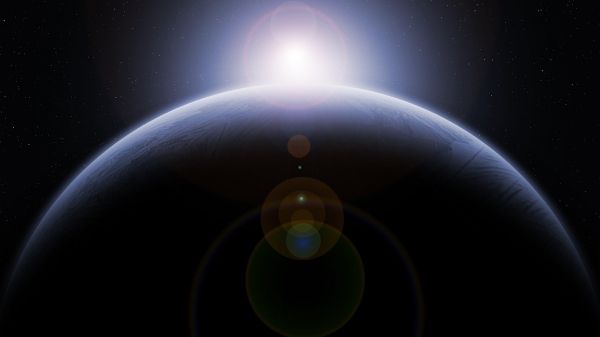K2-18b, which is eight times the mass of Earth, is now the only planet orbiting a star outside the Solar System, or ‘exoplanet’, known to have both water and temperatures that could support life.
The discovery, published today in Nature Astronomy, is the first successful atmospheric detection for an exoplanet orbiting in its star’s ‘habitable zone’, at a distance where water can exist in liquid form.
First author, Dr Angelos Tsiaras (UCL Centre for Space Exochemistry Data (CSED)), said: “Finding water in a potentially habitable world other than Earth is incredibly exciting. K2-18b is not ‘Earth 2.0’ as it is significantly heavier and has a different atmospheric composition. However, it brings us closer to answering the fundamental question: Is the Earth unique?”
The team used archive data from 2016 and 2017 captured by the ESA/NASA Hubble Space Telescope and developed open-source algorithms to analyse the starlight filtered through K2-18b’s atmosphere. The results revealed the molecular signature of water vapour, also indicating the presence of hydrogen and helium in the planet’s atmosphere.
Read more at University College London
Photo Credit: LoganArt via Pixabay


